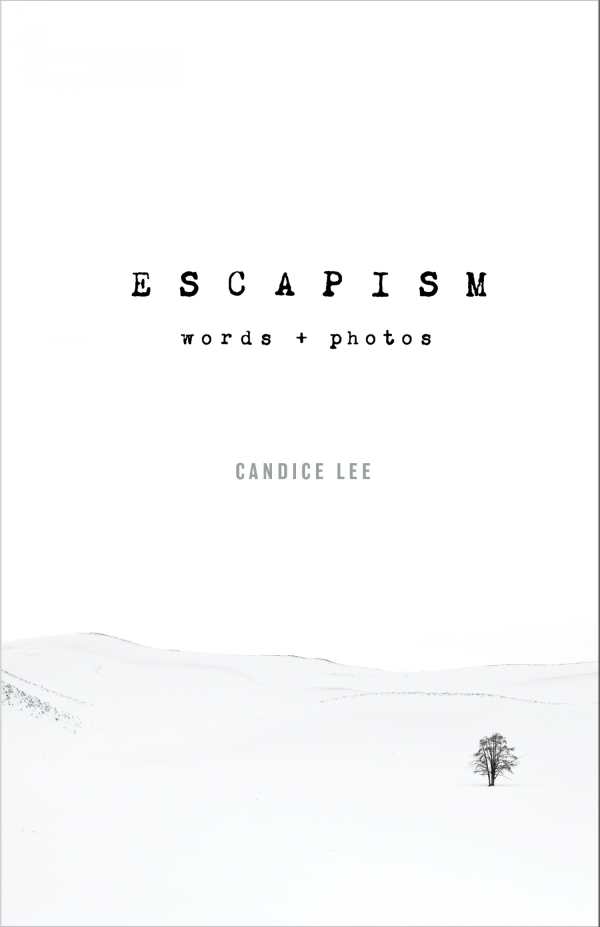Escapism
Words + Photos
Those mourning lost love or celebrating found love will find escaping into this collection to be a memorable trip.
Candice Lee searches for inner harmony in Escapism: Words + Photos, a collection of confessional poetry and majestic landscape photography. At first glance, the content of the two components sometimes seems at odds, until further exploration gives rise to a few integrated sections—particularly in the book’s fifth and final part.
The book follows the author’s process of trying to heal after broken relationships. Sweeping horizons shown in largely people-less photos highlight the external quest, while diary-like poems tend to remain grounded in inner pain. Though the cover conveys feeling with a stark, spare, cold image, the poems inside overflow with emotional abundance.
Lee’s stunning landscape photos are the stars of this collection. The simple lines and soft palette on some two-page spreads demand attention and give reason to pause. Shots of birds in flight, details of bark on towering trees, and unusual angles of skylines capture the world’s majesty and hushed stillness.
In contrast, emotionally jagged poems express the author’s struggle to find peace after failed relationships—and, ultimately, within herself. Repeated references to the book title in poems such as “escape me” finally become clear in “Irene” toward the end of the collection: “This is my story of while I was away. At / least now you know—my demons I / faced, the places I went, and my / escape to be alone.”
After dropping poems with titles such as “word vomits” and punctuating several poems with “bullshit” and “fuck,” Lee’s spirit finally seems to brighten. Her transformation is evident in the final photo of tulips, with rare bursts of pink, yellow, and red.
Although the book’s comfortable-in-your-hands size reinforces a sense of accessibility and immediacy, Lee’s photographic talents are diminished by the restrictions of the format. A different typesetting treatment could have also unified and improved the quality of the overall presentation.
After feeling a sense of freedom in “bird dance” and reading the postscript “We all feel it” on the back cover, some may remain unclear about the definition of “it.” Lee’s work raises an important point about the challenge of sharing highly personal experiences and conveying a deeper, universal meaning. Photography and word lovers, those mourning lost love or celebrating found love, and others on a journey of self-discovery will find escaping into this collection to be a memorable trip.
Reviewed by
Andrea Hammer
Disclosure: This article is not an endorsement, but a review. The publisher of this book provided free copies of the book and paid a small fee to have their book reviewed by a professional reviewer. Foreword Reviews and Clarion Reviews make no guarantee that the publisher will receive a positive review. Foreword Magazine, Inc. is disclosing this in accordance with the Federal Trade Commission’s 16 CFR, Part 255.

